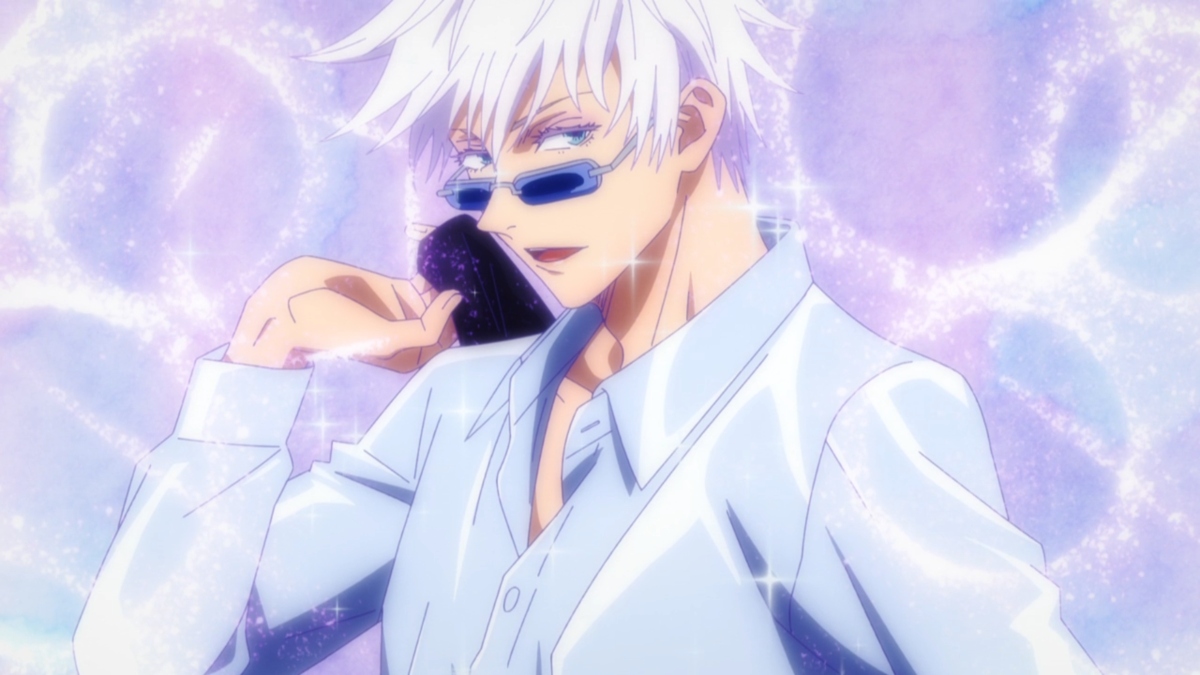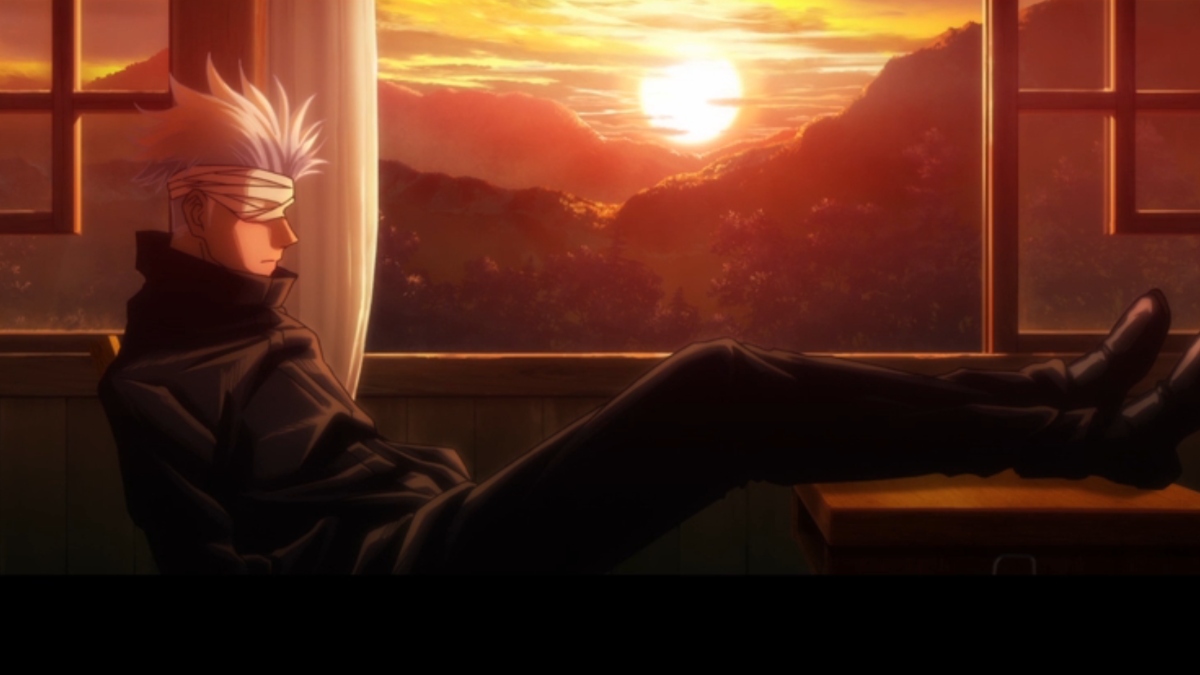Unless you’ve been living under a rock, you probably recognize the wielder of the bluest Six Eyes you’ve ever seen, Jujutsu Kaisen’s Satoru Gojo. With the manga’s completion and the anime’s second season a wrap, the girls have dubbed the strongest sorcerer of the modern era their “glorious king,” a title that, although earned, has been contested by fans of all walks because … sexualization ruined his character?
Like many feminist issues, there are layers to this problem. However, it has little to do with Gojo himself and much more to do with internalized misogyny and the stigmatization of being a fangirl, particularly within male-dominated communities which often spur a collective Madonna-Whore Complex of sorts, separating the respectable from the thirsty.
It’s no secret that fangirls are the lifeblood of pop culture, with their participation in fandom spaces determining what is and isn’t big at the moment, and Gojo’s got a lot of adoring fans, both in-universe and flesh-and-blood. Voters crowned him Crunchyroll’s Top Anime Crush of 2023. They also secured him a landslide win with over 113K votes in the series’ most recent Shonen Jump popularity poll—more than double that of the runner-up and over quadruple the votes earned by previous winners.

Sure, mangaka Gege Akutami has confirmed that Gojo isn’t quite as popular with the ladies as his bestie-turned-bad-guy, Geto, but Gojo is very literally the only character whose fame and good looks are inextricable from the canon. We’re reminded of this on several occasions throughout his time spent as a student and teacher at Jujutsu Tech, during which he’s often giving shojo rather than shonen. So, why does Gojo’s hold on the girls bother so many?
No matter the fandom, even those consisting primarily of women and LGBTQIA+ fans, those who are down bad for their favorite characters, boyband members, actors, or artists find themselves the target of the internet’s ridicule. How much could you really respect or understand the media you’re consuming if you’re busy giggling and kicking your feet? Well, a lot, actually. That’s common sense, I fear. Thich Nhat Hanh, a Zen Buddhist teacher, famously claimed that understanding breeds love. The problem is women are expected to perform fandom at a higher, more palatable standard than men, especially in spaces that have historically been “for the boys.”
Thirst and media literacy aren’t mutually exclusive
Although plenty of women enjoy anime the community still often feels like a boys’ club. Just look at the way many male fans continue to throw shade and criticism at Megan Thee Stallion with each anime cosplay she debuts, questioning whether she “even knows the characters” she’s paying homage to, from My Hero Academia’s Shoto Todoroki to Kid of Soul Eater and, of course, Gojo himself. No questions were asked when Usher donned a blindfold and hit the sorcerer’s signature domain expansion; why get mad at Meg and not the “Hey Daddy (Daddy’s Home)” crooner?
Call me crazy, but it seems like a lot of guys simply don’t want women to like anime. The reason behind this behavior could be attributed to anything, from a desire to gatekeep something “cool,” to jealousy incited by the attention fan-favorite characters like Gojo receive from women (see the Gojo tattoo that almost caused one woman’s fiancé to call off their wedding). We know this, so we stay on our best behavior, strictly talking about power systems, plot armor, and upcoming arcs. Never mind the countless female characters subjected to season after season, chapter after chapter of non-stop catering to the male gaze. Thirst edits of male characters are to be liked but never reposted, and we certainly don’t leave public comments suggesting anything NSFW. Some of us, at least.
Much of the discourse surrounding whether it’s acceptable to openly find a tall, confident guy in a blindfold hot boils down to overt sexism and, in many cases, homophobia. It’s also telling of a fundamental disconnect with the purpose of Gojo’s character. If his heartthrob status seems misplaced, you’re missing a key detail that adds nuance to his goals as a teacher and sorcerer and the dehumanization he endures by being placed on the distant pedestal that is the lived reality of “the strongest.”

Gojo’s attractiveness is built into his character in the same way that his abilities are; there are parallels, yes, but there’s also some juxtaposition at play. We meet him as a flirty, cocky, and seemingly careless teacher whose strength has earned him renown but his innate technique prevents anyone or anything from truly touching him—a wall that he chooses to lift or drop according to the level of threat he faces. For an accomplished sorcerer who has it all by men’s typical standards of success—ability, power, looks, money, confidence—don’t you think this metaphor sounds lonely? Factor in one homoerotic friendship breakup and a diabolically flirtatious English voice dub by Kaiji Tang, and some might call it tragic. Romantic, even.
You, the viewer or reader, aren’t supposed to aspire to be like Gojo, but you are asked to like him and, more explicitly, to try to understand him and his goal to raise a new generation of “strong, clever compatriots.” Messages like this are often lost on fans who feed into the archetypes and expectations being critiqued in media. (We’ve all met those straight male fans of Fight Club and American Psycho, right?)
I’m not saying cishet guys don’t get Gojo at all, but when I scroll through TikTok and Twitter, it’s women and LGBTQIA+ fans I see discussing the series-long question of whether he’s the strongest because he’s Satoru Gojo or if he’s Satoru Gojo because he’s the strongest. (The lovingly agreed-upon answer is that it’s the former). Those talks are almost always tastefully punctuated with thirst edits and comments that might mar your digital footprint.
Editor’s Note: This article was edited after publication to change LGBT to LGBTQIA+.









Published: Dec 15, 2024 09:58 am